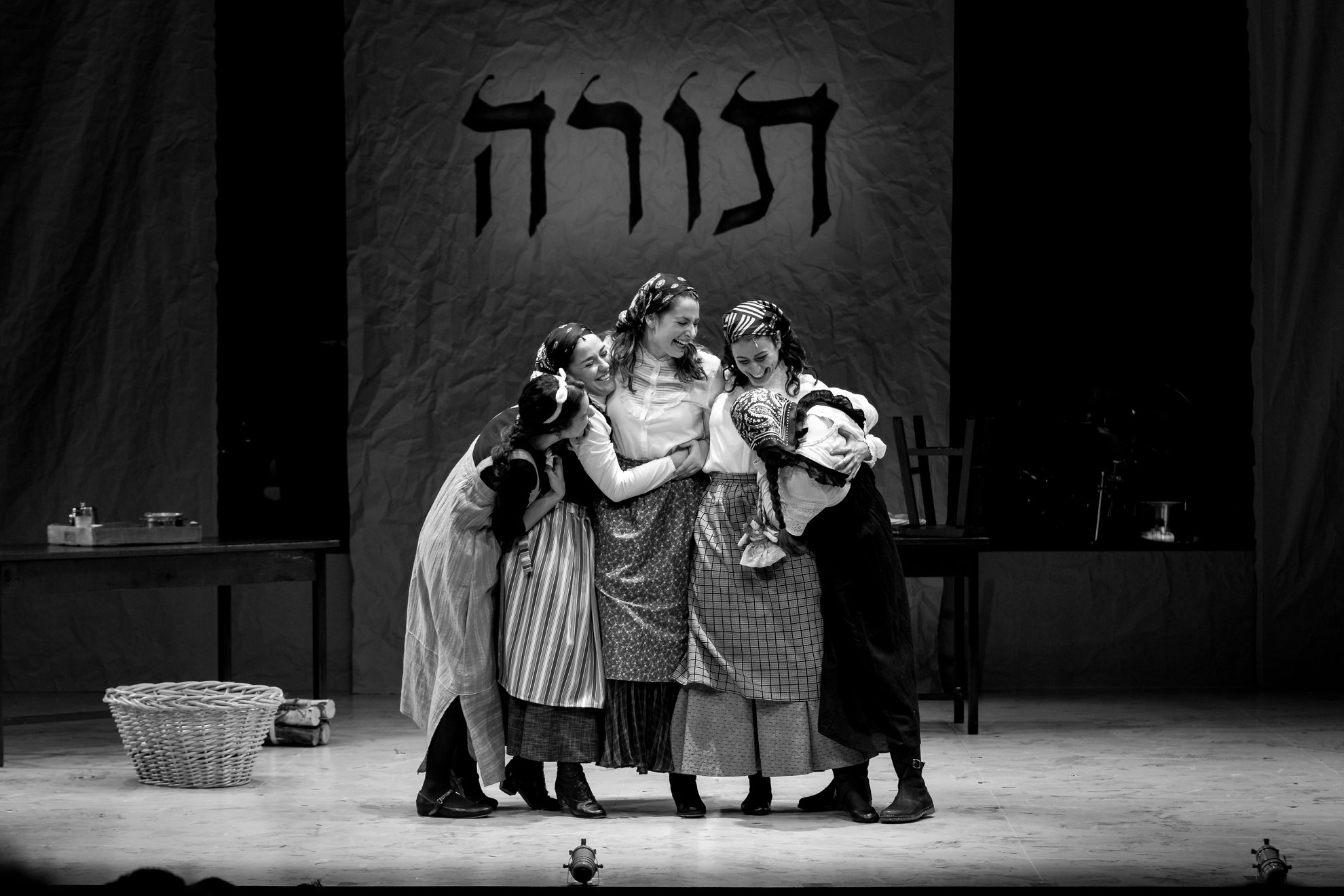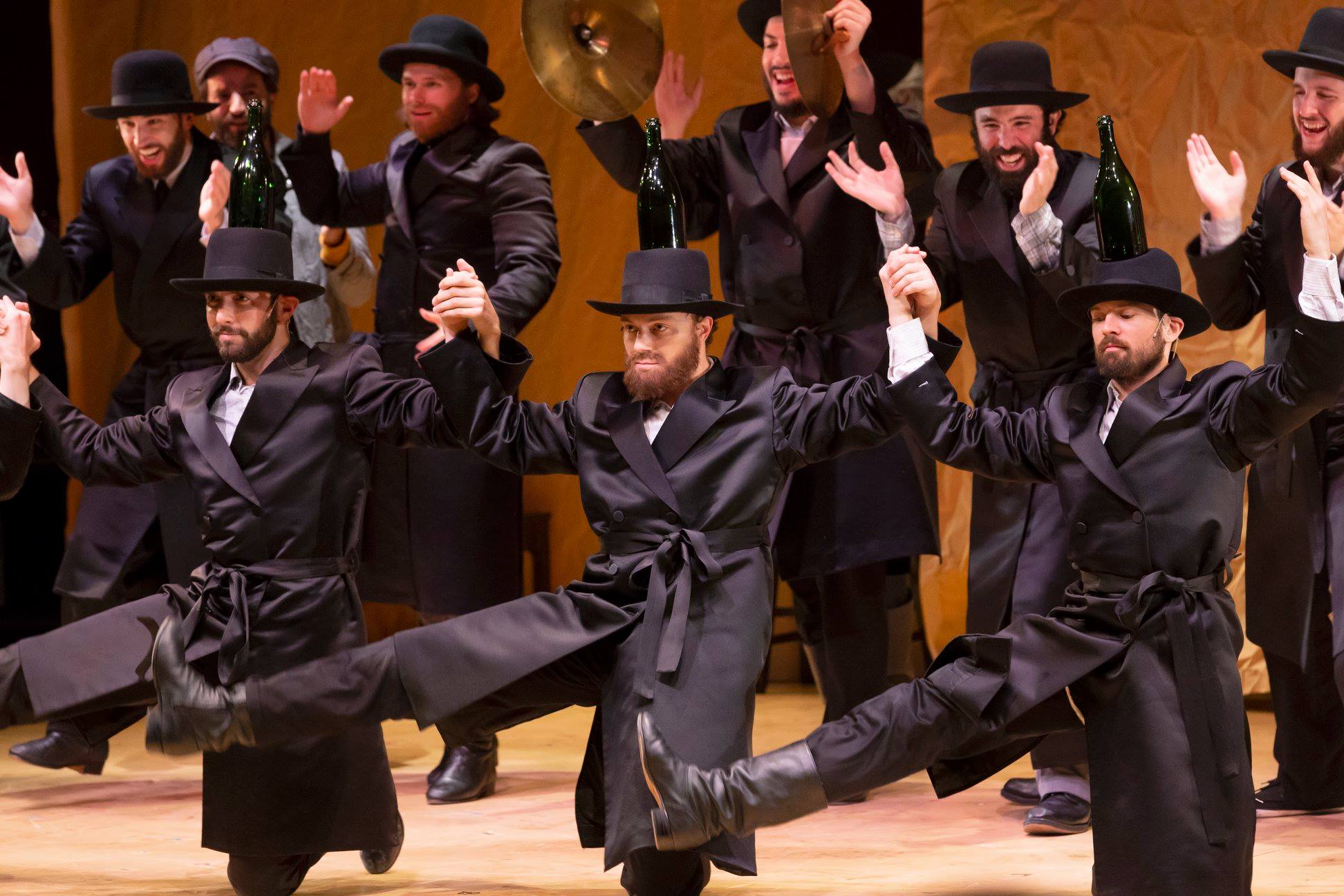This latest limited run of THE PIRATES OF PENZANCE had its final Performance on December 30, 2018.
NYGASP’s next New York production will take place March 1 through March 3, 2019, Ô of a double bill of one act operettas: AGES AGO written in 1869 by Sir. W.S. Gilbert and Mr. Frederic Clay and the 1893 Savoy Comic Opera, MR. JERICO by Messrs. Harry Greenbank and Ernest Ford.
Classical Comedy is Serious Business.
A review of the New York Gilbert and Sullivan Players’ (NYGASP) revival of
THE PIRATES OF PENZANCE or, The Slave of Duty
At the Kaye Playhouse
December 29, 2018
by Moshe Bloxenheim, Guest Reviewer
It is a tribute to their dual devotion to the Savoy Operas and the art of stagecraft that The New York Gilbert and Sullivan Players manage to come across as fresh and vibrant in their latest production of the 1879 classic THE PIRATES OF PENZANCE. While NYGASP sticks close to the classic idea of the production (with its double edged sword of “Traditional Performance”) they mine the original material for its inherent humor and entertainment value as if it were the latest new minted show.
Sir W.S. Gilbert’s plot for THE PIRATES OF PENZANCE takes on the obligations of Duty (with a capital “D”) and runs amok with it. Due to a misunderstanding, Frederic had been signed on as a Pirate Apprentice by his nursemaid Ruth until he reached his 21st year. At that point Frederic announces his intention not merely to leave Piracy, but to follow his Duty (capitalized “D”) and destroy his mentors – an engagingly loopy band of cutthroats who cannot bring themselves to harm any orphan and who are now making a poor living in a world where ALL their possible victims claim to be orphans. Leaving with the good wishes of his former guardians, Frederic – having never met any other women at sea – questions Ruth on whether she will be an ideal woman for him. Ruth’s assurances are wasted when her former charge discovers the pretty young daughters of Major-General Stanley. Angrily sending Ruth away, Frederic tries to win over one of the charming young ladies only to have them all spurn him except for the dazzling Mabel. The ensuing highly musical moment of joy, love and chaperonage is interrupted by the returning Pirates who seize the entire group. Just as the Pirates are about carry these well-bred ladies off and – horror of horrors! – marry them, Major General Stanley arrives and uses his ingenuity to prevent such a rash act of mass matrimony. Soon Frederic joins up with the rather timid local Constabulary with the aim of eliminating the Pirates. All seems to be going Frederic’s way when the Pirate King and Ruth drop in and reveal a technicality in our heroes terms of Apprenticeship that plays upon Frederic’s sense of Duty (with the same capital “D”) and gets him back in their power.
Remember though – this is a COMIC Opera – and though there may be the threat of lovers parted for years and a dire pirate vengeance, all will end happily for everybody.
Sir Arthur Sullivan’s music is first rate – especially when one realizes that he had left his original work at home in London and had to recompose most of the score for the world premiere in New York City – and he and Sir W.S. Gilbert show their brilliant range from the lush and rollicking piratical “Oh, Better Far to Live and Die” to the sly excesses of Frederic’s “Oh, Is There Not One Maiden Breast” and Mabel’s operatic “Poor Wandering One”. Composer and Librettist fully understand that songs on their own can be funny, sad or romantic but they also prove themselves experts in the wit of context; such as the Major General’s hilariously pastoral “Sighing Softly to The River” while surrounded by hidden pirates and policemen in Act Two.
The cast consisting of pirates, policemen, daughters, nursemaid and Major General are marvelous with never a false step. They are all personalities, not merely mobile stage settings or musical window dressing.
In appearance and vocal abilities, Mr. Carter Lynch is as dreamy a Frederic as any Mabel could wish for. An excellent actor, Mr. Lynch truly grasps the humor of his role and never loses sincerity no matter what naiveté or extreme idealism Frederic must exhibit.
The attractive Ms. Kate Dixon is a perfect Mabel. A delight on the ear, she brings out the heroic and comic drama of operatic new love and matches Frederic with the earnestness of her feelings.
Mabel’s sisters are all appealing and whether they are celebrating the seaside or urging unwilling officers to “death and glory”, Mss. Hannah Holmes, Amy Maude-Helfer and Merrill Grant truly shine as the siblings Edith, Kate and Isabel.
Ruth’s attempts to keep Frederic for herself could possibly make her the villainess of THE PIRATES OF PENZANCE. Fortunately, Ms. Angela Christine Smith’s deft and comic portrayal of this nursemaid-turned-pirate shows her as an unsuccessful, yet highly likeable opportunist who is a joy to listen to.
Exhibiting pleasing vocal power together with a stylish sword wielding dignity, Mr. Matthew Wages cuts considerable dash as the Pirate King, making the most of his contradictory position of a truly nice man in a not so virtuous career.
The timid and nervous Sergeant of Police is another contrast of a man in an unlikely line of work. Mr. David Auxier makes him a memorable and downright hilarious character, exhibiting some highly amusing reactions and footwork.
As part of the excellent ensemble of policemen, Mr. Louis Dall’Ava has his own highly diverting moments as the one officer who does everything wrong even when he is in the right.
Mr. James Mills is downright endearing in the role of the Pirate Lieutenant, Samuel. His Samuel is the pirate who tries to keep things in some sort of order and even express unwelcome truths.
In the role of Major General Stanley, Mr. David Macaluso is a treat. Like his colleagues he never lets his portrayal slip no matter how absurd the situation: whether he is acting out the phrases of his classic introductory patter song, “I am The Very Model of a Modern Major General” or executing his fanciful Act Two pas-de-deux with pirates and policemen in attendance, Mr. Macaluso ensures that it is the Major General who is being sublimely silly, not he.
Conductor Albert Bergeret leads his admirable orchestra and singers with a masterful hand and, together with Mr. David Auxier, directs the show with a joyful zest. The two directors recognize that THE PIRATES OF PENZANCE is a cartoon, but they make sure to remind us what the show is parodying as well: villains and heroes who are more talk than action, overqualified incompetents, romantic idealists, and so on… This is what keeps a work that premiered nearly 140 years ago as present and successful as ever.
The choreography is part of the fun and Mr. Bill Fabris celebrates the moments and characters staging the Piratic horseplay, the schoolgirl glee of young ladies let loose on a seaside and the musical theater riff that is slipped into “With Cat-Like Tread” in Act Two. Whether staging ensemble pieces or the more intimate numbers, like Mabel and Frederic’s “Stay Frederic, Stay,” Mr. Fabris shows a skilled touch.
Ms. Lou Anne Gilleland’s scenic designs of the seashore and the ruined chapel are fine settings and Ms. Gail J. Wofford and Mr. Quinto Ott’s costumes are quite picturesque as well, ranging from the eccentric garments of the pirates to the bouffantly bustled daughters of Major General Stanley. All are suitably lit by Mr. Benjamin Weill’s atmospheric lighting.
Rapidly paced shows always make me appreciate the efforts backstage and considering the rather frantic action of THE PIRATES OF PENZANCE, kudos must be given to Production Stage Manager, Joshua Strone and Assistant Stage Manager Annette Dieli who ensure an apparently seamless frenzy onstage.
People go to THE PIRATES OF PENZANCE expecting musical silliness and NYGASP ensures an abundance of merriment, but they also make you admire both the work that provides the amusement and the artistry needed to deliver it so successfully.

I am a computer programmer, wannabe writer who loves theater and just got into the habit of inflicting my theatrical opinions.
I live in New York.Moshe can be reached at MB1224@aol.com
###########






